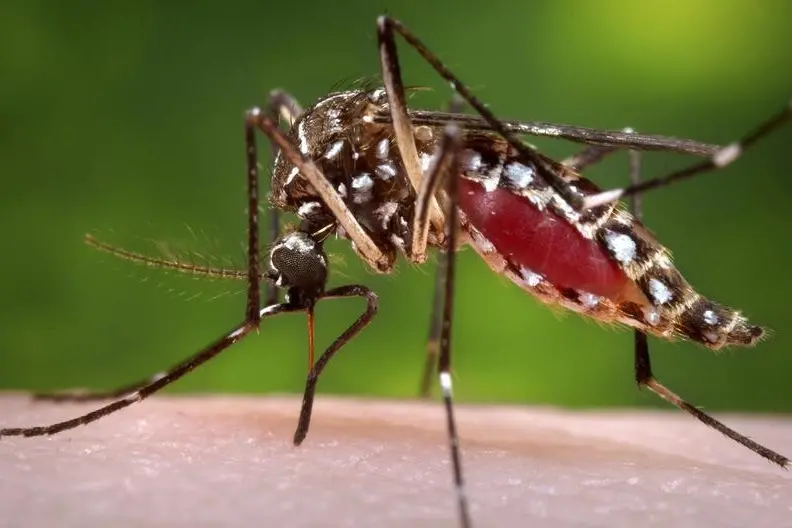PHOTO
The European drugs regulator on Friday recommended a dengue vaccine from Japan's Takeda, paving the way for a second vaccine for the mosquito-borne disease that causes millions of infections annually.
European Medicines Agency (EMA) advisors backed the use of the Takeda vaccine for those aged 4 and older to prevent any of the four so-called serotypes of dengue.
There are no antivirals or specific treatments for the mostly mild, flu-like viral disease. However, some people can develop life-threatening complications. Between 20,000 to 25,000 people, mostly children, die each year, according to the World Health Organization.
If approved, the Takeda vaccine would follow Sanofi's Dengvaxia - the world's first dengue vaccine - which was licensed in 2015 and took two decades to develop.
The use of French drugmaker's vaccine was scaled back considerably after it emerged the vaccine increased the risk of severe disease in 'seronegative' children - those who had no prior dengue exposure when they got the shot.
Takeda's vaccine, TAK-003, has not been evaluated in a head-to-head study with Dengvaxia, so it is not possible to make direct comparisons between the two vaccines, said Gary Dubin, president of Takeda’s global vaccine business.
Still, there has been no evidence of disease enhancement in seronegative participants in Takeda's own trials, he said.
"This gives us further confidence in the safety of the vaccine regardless of previous dengue exposure."
Takeda's vaccine is based on a dengue 2 virus, with DNA from the other three serotypes added in. Data from a pivotal trial has shown the vaccine can induce immune responses to a varied degree against all four dengue types.
Compared to Dengvaxia, Takeda's vaccine shows wider protection for young children and people older than 45 years old, the EMA said on Friday. The final decision on approval will come in due course from the European Commission.
If approved, Takeda expects the vaccine to generate $700 million to $1.6 billion in sales over the course of several years, Dubin said.
In terms of pricing, Takeda is looking at a tiered model for the private and public markets, and for the endemic and travel markets, he added, without disclosing specifics.
(Reporting by Mrinalika Roy and Raghav Mahobe in Bengaluru and Natalie Grover in London; Editing by Maju Samuel, Kirsten Donovan)





















